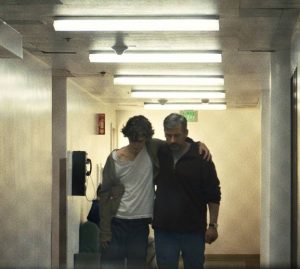By Helen Stevenson
When Nic Sheff tried methamphetamines for the first time, he said the world went from black and white to Technicolor. It is a world he is desperate to escape to and one his father is desperate to save him from.
Beautiful Boy, directed by Felix Van Groeningen, is based on two memoirs by father and son David and Nic Sheff, played onscreen by Steve Carrel and Timothée Chalamet. The two perspectives join to tell their story, from Nic’s first-hand struggle with addiction to David’s relentless need to hold on to the beautiful boy he raised.
Carrel plays David Sheff, an accomplished novelist and freelance writer for the likes of The New York Times Magazine, Rolling Stone and Playboy. After a difficult divorce from his wife Vicky, (Amy Ryan), David was granted joint custody of their son when he was only six years old.
For a greater part of his childhood, Nic is shipped between San Francisco with his father and Los Angeles with his mother. Although the constant change of atmosphere is troubling, his parents visibly search to connect, especially as he grows older. Particularly, David attempted to connect by smoking a joint with his son the day he was accepted to college.
Nic is creative, lively and loving. He loves niche bands and creating art. He finds comfort in his guitar and spending time with his younger siblings.
That is, when he is not high.
When Nic is high, he is a thief. A liar. He uses the people around him, looking for money or some way to score. He disappears for days on end, leaving his father to call hospitals and police stations in the early morning–“Have you seen my son?”
Relapse is an important part of recovery and audiences watch as Nic goes through it again and again. They watch as David loses sleep, cuts off his family and becomes consumed by his son’s disease. They hope Nic and David will survive.
The film plays with time, often shifting from Nic’s childhood, to his teen years, to his early twenties. Although the filmmaking technique attempts to break up the tension of relapse and recovery with moments of sincerity, it neglects to develop Nic’s character before he becomes addicted to methamphetamines.
Without a foundation of who Nic really is–without motivations of deception and a need to use the people around him–it is difficult to feel any sort of connection with his character. When did Nic become addicted? Why? How? Does he just come off as loving because it is a method of deception? Or is that who he is without the drugs consuming him?
The acting saves this movie from being otherwise a cookie-cutter film about addiction. Carrel performs beautifully, once again proving his talent as a formidable drama actor. Chalamet seems to get to the core of Nic, with emotional scenes that prove the nature of his disease and his genuine desire to recover.
There is no solution or cause to addiction and the film does not pretend that there is. There is no catastrophic event that triggers Nic’s downfall.
However, in terms of emotional impact, the film could have benefited from a greater effort to develop its characters–to show that really, addiction may affect anyone. Someone like Nic. Someone you know.







































































































































































































